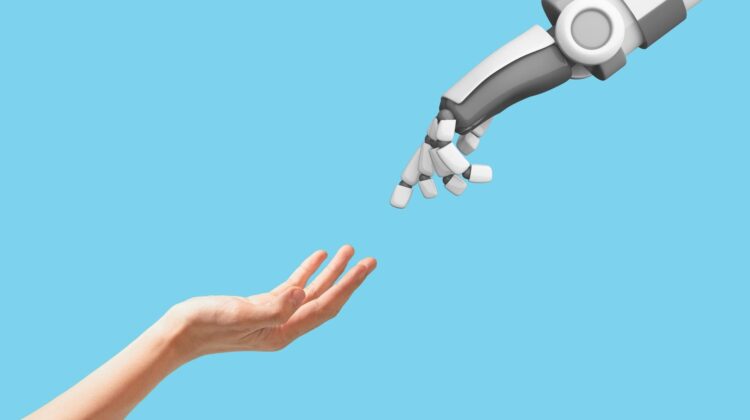
The Future of Work: Steering Through the Confluence of Technology and Society
Throughout history, work has evolved hand in hand with technological advancements, from the steam engines of the Industrial Revolution to today’s digital metamorphosis. As automation, artificial intelligence (AI), and societal dynamics converge, the landscape of work is transforming in profound ways. Navigating these seismic shifts demands a proactive approach from individuals, organizations, and governments.
The Technological Vanguard: Crafting Tomorrow’s Workplaces
Automation and AI: Redefining the Human Role
The proliferation of automation and AI is reshaping industries at an extraordinary pace. Machines now execute not only routine tasks but also intricate operations. In manufacturing, robots dominate assembly lines, while in service industries, AI-powered chatbots manage customer interactions with efficiency and precision.
Yet, this evolution doesn’t spell obsolescence for human workers. Instead, it signals a shift toward collaboration, where humans partner with machines, focusing on uniquely human attributes such as creativity, critical reasoning, and emotional intelligence. This synergy heralds an era of augmentation rather than replacement.
Remote Work and the Digital Ecosystem
The global shift to remote work, catalyzed by the COVID-19 pandemic, has entrenched virtual workspaces as a permanent reality. Tools like Zoom, Microsoft Teams, and Slack facilitate effortless collaboration, enabling organizations to access talent from across the globe.
This reimagining of productivity—valuing outcomes over hours logged—has also highlighted challenges, including maintaining work-life equilibrium, safeguarding mental well-being, and addressing cybersecurity vulnerabilities in decentralized environments.
Societal Reverberations of Technological Innovation
Disparities and Workforce Realignment
While technology ushers in opportunities, it risks amplifying inequalities. Roles susceptible to automation, such as administrative or manual labor, face potential extinction, leaving many workers vulnerable. Conversely, expertise in fields like programming, machine learning, and data analytics is in escalating demand.
Addressing these disparities requires a concerted focus on reskilling and upskilling. Governments, educational bodies, and private enterprises must align efforts to prepare workers with skills tailored to future demands.
Cultural Evolution in the Modern Workplace
Technology’s infusion into work culture has fueled the rise of non-traditional arrangements like gig work and freelancing. These flexible modalities promote independence but challenge long-held notions of job stability and benefits.
Employers must adapt to these cultural shifts by cultivating inclusive environments, ensuring equitable pay, and fostering engagement regardless of how work is conducted.
Emergent Trends Steering the Future of Work
Hybrid Work Structures
Blending remote and in-office work, hybrid models are gaining momentum. They offer the flexibility prized by employees while preserving the collaborative essence of office culture. For success, these models require transparent policies, equitable resource distribution, and consistent communication.
Sustainability and Green Careers
As environmental concerns intensify, businesses are embedding sustainability into their operations. Demand for green jobs in renewable energy, sustainable agriculture, and environmental management is surging, positioning skilled workers in these sectors as architects of a sustainable tomorrow.
AI and Ethical Oversight
With AI becoming an integral part of decision-making processes, ethical challenges such as bias, data security, and accountability take center stage. Developing robust frameworks for ethical AI use is imperative to fostering trust and ensuring fairness.
Blueprints for a Resilient Future: Strategies for Adaptation
Cultivating Lifelong Learning
In an era where skills rapidly lose relevance, continuous learning is non-negotiable. Platforms like Coursera, Udemy, and edX democratize access to knowledge, empowering individuals to stay competitive.
For organizations, investing in workforce development and fostering a culture of innovation is equally essential to thrive in a volatile environment.
Embracing Agility and Fostering Innovation
Agility has become a cornerstone of resilience. Businesses must remain adaptive, experimenting with new technologies and swiftly responding to shifting market landscapes. Employees, in turn, must nurture a growth mindset, embracing change as an opportunity for advancement.
Fortifying Social Safety Nets
Governments hold the responsibility of mitigating the disruptive impacts of technological transitions. Policies like universal basic income (UBI), enhanced unemployment protections, and affordable healthcare can act as safety nets for displaced workers, cushioning societal upheavals.
Collaborative Pathways to a Shared Future
The trajectory of work is not solely dictated by technological prowess; it is equally shaped by collective human values and cooperative action. A united effort from governments, industries, and communities is essential to ensure technological progress uplifts rather than divides.
By championing inclusivity, fostering innovation, and embracing adaptability, we can chart a future of work that harmonizes technological advancements with the societal good, forging a resilient and equitable path forward.
Author: Jeremy Julius
Consultant, international policy expert, accompatban companies on their path to growth in highly developed markets. He collaborates with The Deeping for insights in the political/social area
